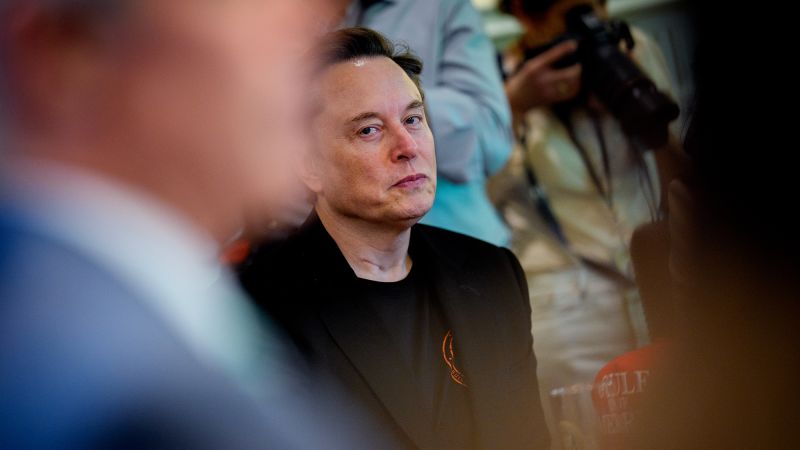Elon Musk, the universally recognized figure and one of the wealthiest individuals worldwide, recently made a powerful statement on social media platform X, asserting, “You are the media now.” This statement reflects his burgeoning trend of avoiding traditional interviews, particularly with news outlets that he perceives as antagonistic. Instead, Musk has favored conversing within environments he finds more friendly, such as Fox News, various conservative podcasts, and his own social media platforms.
However, during a recent event marked by controversy, Musk chose to break away from his typical communication strategy. The Wall Street Journal was set to publish a story suggesting that Tesla’s board was considering replacing Musk as CEO—a claim he and Tesla firmly denied. In response, Musk, alongside three prominent members of the Department of Government Efficiency (DOGE), convened a rare meeting with journalists from major media outlets in the Roosevelt Room of the West Wing. This significant gathering allowed Musk to reflect on his experiences during the Trump administration.
During an exchange that has since been widely reported, Musk made a striking analogy, comparing himself to Buddha when questioned about the future leadership of DOGE—a role he plans to step back from soon. He remarked, “Is Buddha needed for Buddhism?” as a rhetorical reflection on the resilience of the initiative he leads, questioning whether it might grow stronger in his absence.
The meeting attracted reporters from prestigious outlets including The New York Times, The Washington Post, USA Today, Axios, Semafor, Bloomberg, ABC, NBC, and Fox News, with even the Associated Press—a wire service often sidelined by the White House—receiving an invitation to cover the event. This inclusion is particularly significant given the administration’s previous attempts to limit their access.
According to sources acquainted with the situation, the decision for this sit-down was made swiftly, with White House officials alerting reporters just hours prior. This impromptu gathering transpired in the afternoon and lasted about an hour. Witnesses claim that Musk engaged thoughtfully with the reporters present. Despite his historic tensions with mainstream media, reports suggested that he maintained a non-confrontational demeanor throughout the discussion.
Interestingly, some accounts of the meeting indicated that Musk appeared somewhat subdued and less emboldened than in previous interactions, leading to coverage that suggested a shift in his confidence levels. For instance, The New York Times’ Jonathan Swan noted in his reporting that Musk sounded less assertive than expected.
During this candid hour, Musk revealed that the anticipated $1 trillion in cuts from DOGE had not materialized; only around $160 billion had been realized. He communicated a sense of difficulty in achieving the goal without support from Washington, emphasizing the political resistance that comes with substantial fiscal change. “It’s sort of, how much pain is the Cabinet and the Congress willing to take?” he questioned, highlighting the challenge ahead.
Musk also acknowledged that some crucial federal employees had been “accidentally let go” during the cuts he enacted, which have spurred backlash against not just him but also the Republican leadership. With an air of levity, Musk shared amusing anecdotes about his interactions with President Trump, revealing that he has stayed in the Lincoln Bedroom several times. On one occasion, Trump had whimsically called Musk late at night, encouraging him to procure caramel Häagen-Dazs ice cream from the White House kitchen.
Even as Musk prepares to devote less time in Washington, he confirmed that he would maintain an office on the White House grounds. He humorously noted that the view from his office window was solely an HVAC unit, which he joked offers some security against potential threats. Yet, he claimed that his presence would not diminish, as he would still have the largest monitor within the premises, emphasizing his ongoing commitment to DOGE, which he described as “a way of life.”
In essence, this gathering and the discussions surrounding it mark a pivotal moment for Musk as he navigates the complexities of political oversight, corporate leadership, and media engagement in one of the most scrutinized environments in the world.



